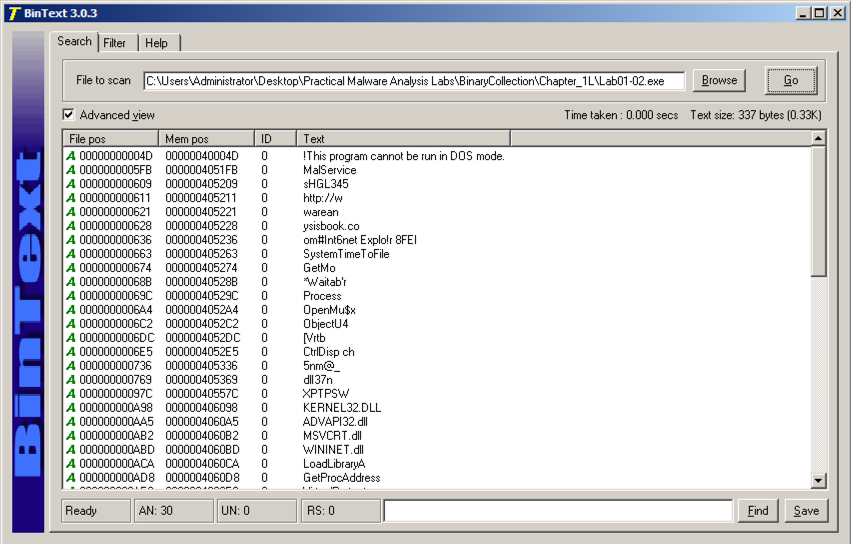
There are only a few strings, and they call only a few ordinary Windows API commands, as shown below.
These strings aren't from the malware--they are from the UPX packer, as we will show below.

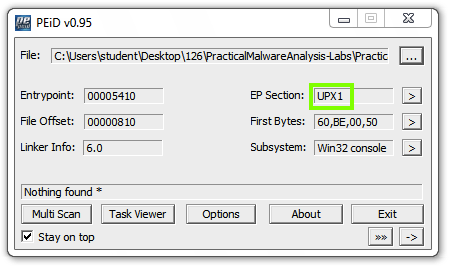
These are section names produced by the UPX packer.

UPX
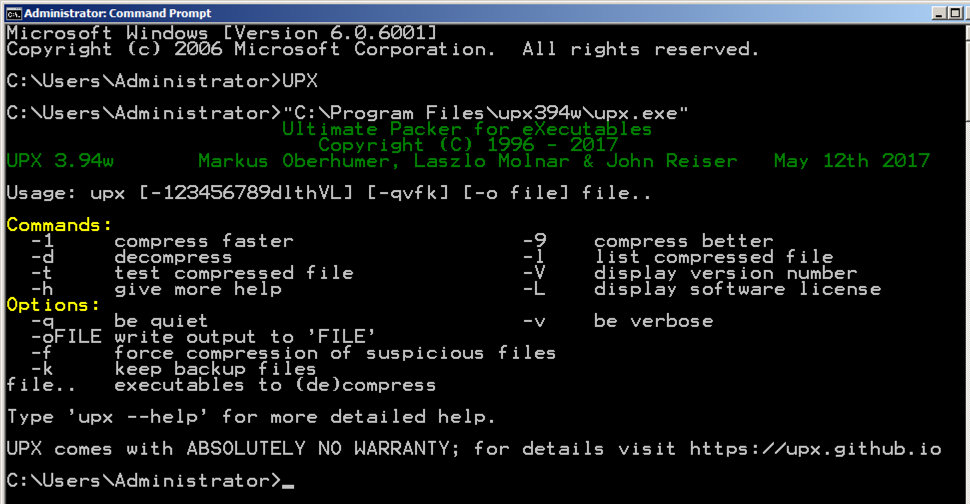
Execute these commands to move to the directory containing the malware samples, and list the files there:
cd "\Users\Administrator\Desktop\Practical Malware Analysis Labs\BinaryCollection\Chapter_1L"
DIR
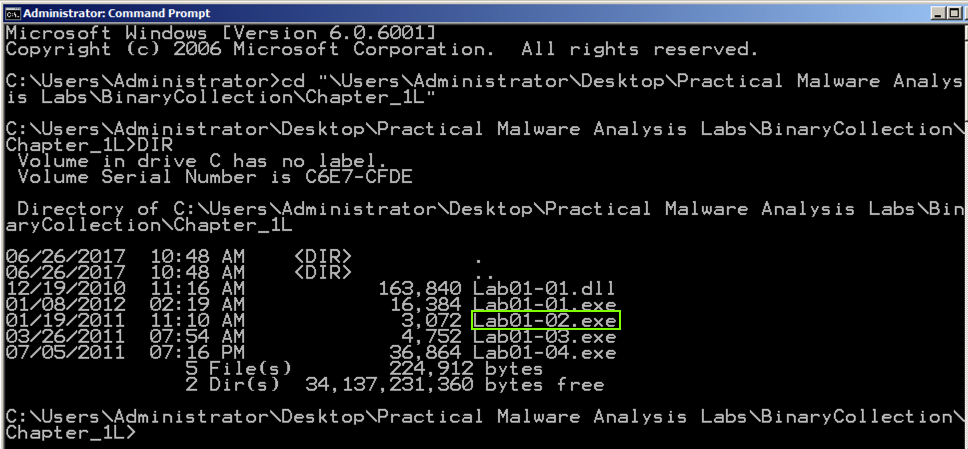
Execute these commands to unpack the file, and list the files again:
UPX -d -o Lab01-02-unpacked.exe Lab01-02.exe
DIR
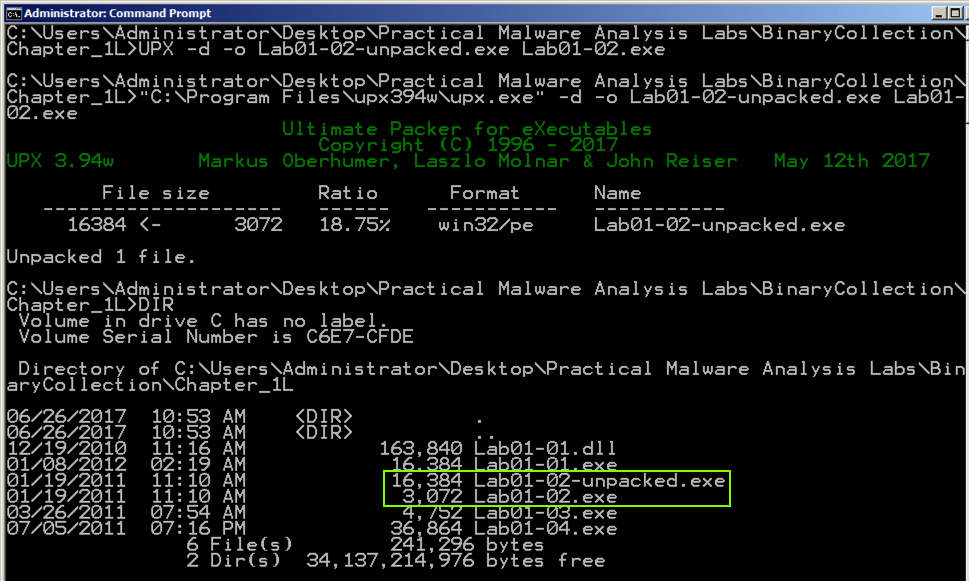
Analyze the unpacked file with PEiD. It now is regognized as a "Microsoft Visual C++ 6.0" file, as shown below.
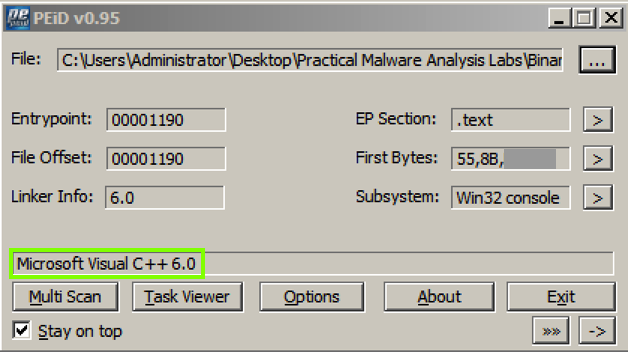
A1B2
The imports from KERNEL32.DLL, ADVAPI32.DLL, and MSVCRT.DLL are uninformative generic functions used by almost every program.
However, the WININET.DLL imports are InternetOpenUrlA and InternetOpenA, as shown below. This indicates that the malware connects to a URL.
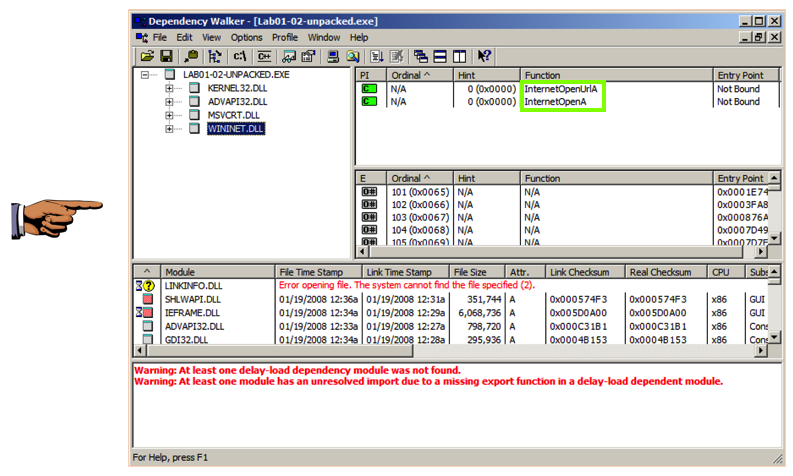
You should see the API names InternetOpenURLA and InternetOpenA, and the Command-and-Control URL http://www.malwareanalysisbook.com, as shown below.
These suggest that infected machines will connect to http://www.malwareanalysisbook.com. The name of the running service, MalService, is also visible.
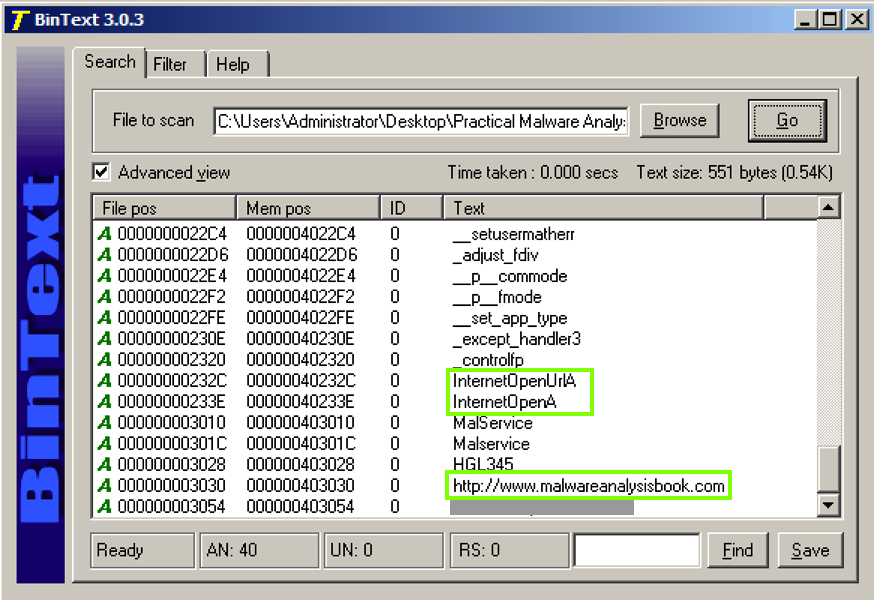
The flag is the primary packer name, which consists of three capital letters.
The flag is the date, in this format: 1999-01-31